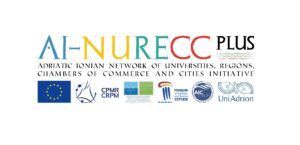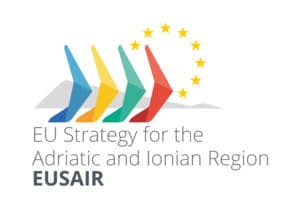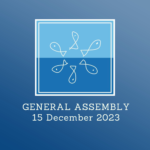The European Committee of the Regions (CoR) is deeply engaged in cooperation with the Western Balkans. The primary tools for it are the CoR Working Group on the Western Balkans and three Joint Consultative Committees, which operate on a parity basis with local and regional authorities from respective Balkan countries (Montenegro, North Macedonia and Serbia). These bodies have discussed many issues of mutual interest, including in the area of the rule of law and good governance, which is of particular importance in the context of the EU accession negotiations.
 Following the referral of the Croatian Presidency of the Council of the European Union, the European Committee of the Regions decided to draw up an opinion on the “Local Democracy in the Western Balkans”.
Following the referral of the Croatian Presidency of the Council of the European Union, the European Committee of the Regions decided to draw up an opinion on the “Local Democracy in the Western Balkans”.
Nikola Dobroslavić, Prefect of Dubrovnik-Neretva County, President of Adriatic Ionian Euroregion and Chair of the CoR Working Group for the Western Balkans, is the rapporteur general for the opinion. Unfortunately, the coronavirus crisis has moved the adoption date of the opinion beyond the Croatian Presidency.
The draft opinion focuses on the phenomenon of “local state capture“, which is one of the main impediments to the effective rule of law, good governance and development of local democracy in the Western Balkans and beyond it. Some of the defining aspects of local state capture are: manipulated public procurement in violation of EU or international standards; undeserved appointment, recruitment and promotion of civil servants, as well as managers and employees of public-sector companies; pressure on the judiciary; non-transparent support from local authorities to civil society organisations; non-transparent activities of local authorities and public administration; control of local media through ownership and advertising; misuse of political parties for personal enrichment and keeping local communities and authorities in a state of “capture” by building and maintaining patronage networks.
In the same framework, the CoR has noticed and warns against the following major obstacles to the function of the rule of law in the Western Balkans: slow, inefficient, often biased and sometimes corrupt judiciary; widespread and deeply rooted corruption; episodes of ethnically and religiously motivated violent extremism; inadequate legislative and institutional solutions with regard to local and regional self-government, including a lack of functional and fiscal decentralisation.
The policy recommendation of Mr. Dobroslavic would be to address the local state capture and connected negative phenomena within the context of the EU accession negotiations with individual Western Balkan countries (as is already the case in the framework of the “Chapter 23: Judiciary and fundamental rights” of the EU acquis) and the overall EU relations with the Western Balkans. In addition to monitoring the alignment of national legislation with the EU acquis, the EU should closely observe the real situation at local level as regards the rule of law, good governance, public procurement, the fight against corruption and media freedom. In that context, the EU should increase its support to stakeholders working to promote local democracy and the rule of law, such as independent, non-profit organisations that monitor respect for human rights, transparency and/or corruption in public authorities (“watch-dog organisations”). These efforts should also include the thorough examination of cases of local state capture, monitoring the implementation of legislative and institutional solutions for limiting politicians’ discretionary powers over financial and human resources, and promoting media freedom through financial and educational incentives.
Holding of free and fair local elections is crucially important. There are examples in the Western Balkans of elections boycotted by the opposition, as well as local elections not been held at all (for 11 years in the case of Mostar). More engagement of the EU is needed in this respect.
The CoR stand ready to continue and reinforce the support to local democracy in the Western Balkans through the Working Group on the Western Balkans and the three Joint Consultative Committees.
You can read the CoR Opinion Local Democracy Challenges in the Western Balkans which is in discussion here















